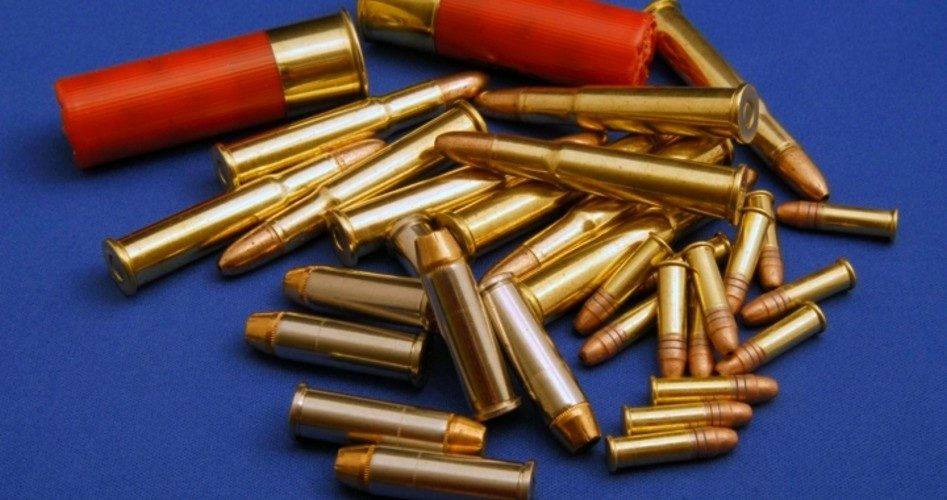
NEW YORK — On the opening day of the Arms Trade Treaty conference currently underway at the United Nations, Control Arms — a consortium of human rights groups committed to eradicating the international arms trade — distributed a checklist of “nine essential items for a bulletproof treaty.”
As the delegates from over 100 nations work to hammer out an agreement giving the United Nations control over the worldwide sale, trade, and transfer of weapons, there are many (especially in the United States) who rightly perceive in the terms of the Arms Trade Treaty a threat to the Second Amendment’s guarantee of the individual’s right to keep and bear arms.
Even a quick review of Control Arms’ nine points confirms those fears.
For example, the first item on the list calls for UN regulation of “all conventional arms,” including “munitions, and parts and components [sic].”
The U.S. delegation is without constitutional authority to sit and negotiate a treaty that would grant an unelected, unaccountable, unanswerable body of globalist bureaucrats the authority to legislate this country’s use, sale, or manufacture of any firearm or ammunition. Admittedly, the government of the United States has for decades employed those devices in the execution of various unconstitutional interventionist combat operations, but that is a matter for the American people to address, not a coterie of internationalists with their eyes on establishment of a global government.
The second point of Control Arms is that “all types of arms trade” should be eradicated, not just “export or ‘trade.’”
All types of arms trade would include the private sale of guns, magazines, parts, and ammunition — both at home and abroad. It would ostensibly impose UN sanctions on any government that does not enforce these restrictions on their citizens.
If Control Arms (along with the majority of countries represented at the ATT conference) has their way, gun shows would be outlawed, as well as the right of individuals to buy or sell guns to other individuals.
When asked by this reporter what effect this would have on non-federalized state militias within the United States, a Control Arms representative said that the Obama administration would be responsible for overseeing the clamp-down on these potential “violators.”
If the UN is serious about ridding the world of the scourge of war by eliminating the sale, trade, and transfer of weapons and ammunition, then those prohibitions should extend to governments as well, and not just “non-state actors.” As anyone familiar with the lingua franca of the UN knows, “non-state actors” is another way of saying “anyone but UN-approved regimes.”
Governments will still be permitted to own weapons; in fact, only governments will be allowed to possess firearms and ammunition. The rest of us will be forcibly disarmed so that there will be no chance of resistance to the enforcement of the rest of the provisions on the UN’s long slate of edicts.
Which brings us to the third point in the Control Arms checklist, calling for “an absolute prohibition on transferring arms where they might be used for war crimes.”
Americans are right to wonder who would be given the right to decide what is or is not a war crime and what process this arbiter would follow in judging the merit of such a charge made against an individual.
Would state militias be liable to be charged under terms of such a treaty? Would the U.S. armed forces be deployed by the commander-in-chief to enforce the seizure of arms from such groups in furtherance of any provision in the gun control treaty calling for this “absolute prohibition” on gun transfers?
Next, Control Arms calls for a treaty that contains “robust criteria” on the transfer of weapons. The restrictions advocated include prohibitions on any sale of guns or ammo that would be used in “serious violations of IHL [international humanitarian law],” “organized crime,” “corrupt practice,” and “gender-based violence and violence against children,” among others.
It is the inclusion of that last criterion that would likely be the hook upon which the Obama administration or the Senate would hang their concession to the demands of the sponsors of the Arms Trade Treaty. One can imagine the appeal to our sense of decency and to the protection of the safety of our women and children that lawmakers would make in order to justify their “reluctant” accession to the UN and the terms of the Arms Trade Treaty.
What of the safety of women with regard to firearms? The globalist gun grabbers claim that it is the ready availability of firearms which poses the greatest threat to women and children.
Last week, Julianne Versnel, Director of Operations for the Second Amendment Foundation, issued a statement on this point on behalf of the American Conservative Union.
“Mr. President, the right of self-defense is particularly important to women,” Versnel wrote. “As women we have a right to protect our bodies and to protect ourselves against assault and rape.”
On behalf of the American Conservative Union, Versnel reminds delegates at the ATT conference that “almost half of the handguns in the US are owned by women” and that “they are used daily for self-defense.”
This sentiment doesn’t sit well with the globalists intent on leaving all but government agents defenseless.
Propaganda produced by Control Arms and other NGOs portrays guns as the means of perpetrating violence against women, not as their best means of resistance to it.
Versnel calls this position “part of the outmoded and disproved belief that women are somehow weaker and must rely on males for protection.”
Again, when it comes to the UN’s gun grab, the facts don’t support the agenda.
Finally, in their checklist for an effective arms control treaty, Control Arms suggests that the ATT include provisions for “obligatory record-keeping and public reporting.”
In practice, this means that the governments of member nations (including the United States) should create a massive all-inclusive database of all parties that manufacture, own, sell, trade, or transfer arms and ammunition. Then, once the list has been compiled, it should be published on the Internet for all to see.
If recent history is a reliable indicator of how such lists would be used, after the catalog is complete, Congress would pass a law (or the president would issue an executive order) compelling “voluntary” surrender of privately-owned weapons, ammo, parts, and components (including reloading equipment). If, after a statutorily-set window citizens don’t turn in these items to their local law enforcement, then officers will be sent to remind violators of their responsibility under the law to disarm.
Then, should someone still refuse to hand over their guns and ammunition, charges will be filed and prison sentences will be imposed.
The Arms Trade Treaty conference continues through March 28. This leaves Americans determined to preserve their right to keep and bear arms just a few days to contact their senators and remind them of the oath they took to “preserve, protect, and defend the Constitution of the United States.”
Perhaps concerned citizens can share with their senators the following insight from eminent juror of the founding generation St. George Tucker:
This may be considered as the true palladium of liberty…. The right of self defence is the first law of nature: in most governments it has been the study of rulers to confine this right within the narrowest limits possible. Wherever standing armies are kept up, and the right of the people to keep and bear arms is, under any colour or pretext whatsoever, prohibited, liberty, if not already annihilated, is on the brink of destruction.
Joe A. Wolverton, II, J.D. is a correspondent for The New American and is currently on assignment in New York to cover the Arms Trade Treaty conference. He can be reached at [email protected].
Related articles:
“Bizarre Interpretation of Second Amendment” is Obstacle to UN Gun Grab
Senate Votes to Keep U.S. Out of UN Arms Trade Treaty
UN Arms Trade Treaty: National Lists of Gun Owners; Ammunition Regulation
UN Arms Trade Treaty, Day Two: Focus Is Transfer, Registry of Firearms
UN Arms Trade Conference Begins, Sec. General Calls for “Robust” Treaty



